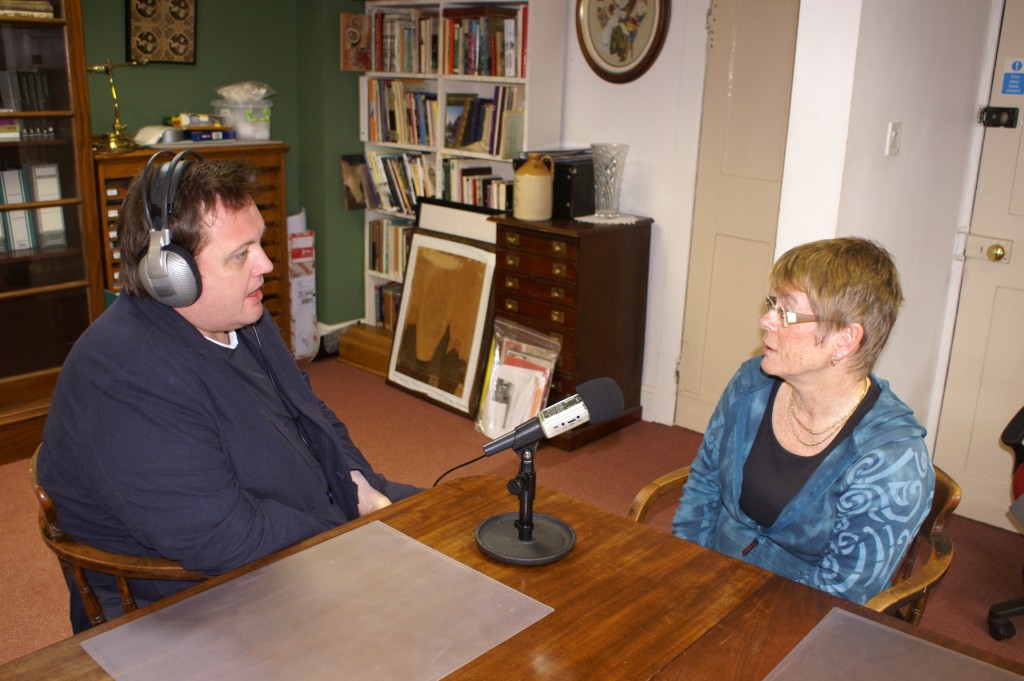By Julia Letts

Last Wednesday, I watched on as Alison McKee and Shaun Evans, our two Black Country Stories volunteers from Wolverhampton had their first go at oral history interviewing. Neither of them had ever done anything like this before, but a couple of months ago, they signed up to our oral history volunteer programme which is running from now until Christmas at Bantock House. It’s all part of Martin Parr’s Black Country Stories project – Martin collects the images, we (myself and the volunteers) collect the voices and stories behind the images.
The first step is some basic oral history training: learning how to set up an interview; how the audio recorder works; what to ask; and how to deal with copyright issues. The second stage is to issue the volunteers with small digital recorders, which will be on loan to them for the duration of the programme. We’re now at the stage where they need to practice making recordings and get more confident at ‘shaping’ their interviews. So in last week’s session, we set the machines up to record each other. The volunteers had completely different styles but in the space of a few minutes, they had successfully extracted lots of information and some wonderful descriptions and anecdotes. One had grown up in Willenhall and talked about his sense of belonging to the place and his first job in a factory that made fastenings. Another beautifully described her childhood experiences of growing up in a Victorian villa which always seemed dark and cheerless, contrasted with an early expedition to see Disney’s ‘Fantasia’ which was bursting with colour and excitement. Perhaps, she said thoughtfully, it was this that inspired her to become an artist.
These short practice interviews reinforced my passion in oral history. It gives people the chance to talk freely and openly about things that have shaped and changed their lives. It’s revealing, fascinating and always unexpected. At the end of last week I interviewed a mother of five who’d grown up in Bradley: “I won’t be able to tell you anything interesting”, she assured me as we settled down in her lounge, surrounded by family photos and a couple of Elvis. She’d been photographed by Martin Parr because she’d helped set up and run a Jubilee party in her street. We talked about the party, and it was definitely interesting, but it was her memories of growing up in Bradley that interested me more. She could still recall the names of almost every one of her neighbours in their long horse-shoe shaped street: “I can see them now”, she said more than once, with a twinkle in her eye.
This is what I love about oral history recording and what I hope to pass on to the volunteers on the Wolverhampton programme. You go expecting something and come away with something else – an amazing insight into someone else’s life and a valuable resource for future generations that, thanks to this project, will be preserved in the Black Country archives forever.